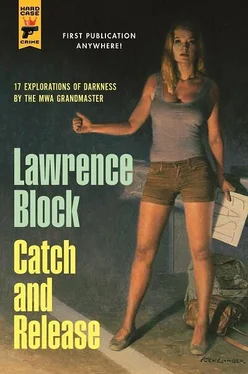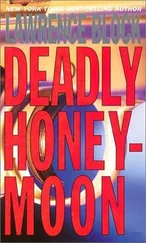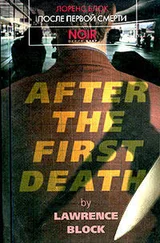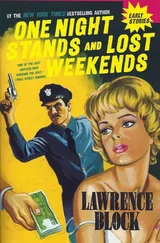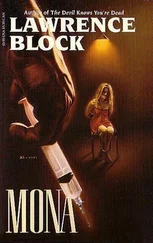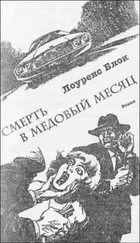A cigar is a perishable thing, but properly stored and maintained there’s no reason why it cannot last almost forever. In this particular instance, the original owner was a cigar aficionado who began laying in a supply of premium Havanas shortly after Castro took power. Perhaps he anticipated the embargo. Perhaps he feared a new regime would mean diminished quality. Whatever it was, he bought heavily, stored his purchases properly, and then, his treasures barely sampled, he was diagnosed with oral cancer. The lip, the mouth, the palate — I don’t know the details, but his doctor told him in no uncertain terms that he had to give up his cigars.
Not everyone can. Sigmund Freud, whom Doctor quoted a few minutes ago, went on smoking while his mouth and jaw rotted around his cigar. But this chap’s addiction was not so powerful as his instinct for self-preservation, and so he stopped smoking then and there.
But he held on to his cigars. His several humidors were attractive furnishings as well as being marvels of temperature and humidity control, and he liked the looks of them in his den. He broke the habit entirely, to the point where his eyes would pass over the humidors regularly without his ever registering a conscious thought of their contents, let alone a longing for them. You might think he’d have pressed cigars upon his friends, but he didn’t, perhaps out of reluctance to have to stand idly by and breathe in the smoke of a cigar he could not enjoy directly. Or perhaps, as I somehow suspect, he was saving them for some future date when it would be safe for him to enjoy them as they were meant to be enjoyed.
Well, no matter. In the event he did recover from his cancer, and some years passed, and he died of something else. And, since neither his widow nor his daughters smoked cigars, they wound up consigned for sale at auction, and Archie O’Bannion bought them all.
There were two thousand of them, and Archie paid just under sixty thousand dollars for the lot. That included the several humidors, which were by no means valueless, but when all was said and done he’d shelled out upwards of twenty-five dollars a cigar. If he consumed them at his usual rate, a day’s smoking would cost him $150. He could afford that, but there was no denying it was an indulgence.
But what troubled him more than the cost was the fact that his stock was virtually irreplaceable. Every cigar he smoked was a cigar he could never smoke again. Two thousand cigars sounded like an extraordinary quantity, but if you smoked six a day starting the first of January, you’d light up the last one after Thanksgiving dinner. They wouldn’t last the year.
“It’s a damned puzzle,” he told me. “What do I do? Smoke one a day? That way they’ll last five years and change, but all the while five out of six of the cigars I smoke will be slightly disappointing. Maybe I should smoke ’em all up, one right after the other, and enjoy them while I can. Or maybe I should just let them sit there in their beautiful humidors, remaining moist and youthful while I dry up and age. Then when I drop dead it’ll be Mary Katherine’s turn to put them up for auction.”
I said something banal about the conundrum of having one’s cake and eating it, too.
“By God,” he said. “That’s it, isn’t it? Have a cigar, Father.”
But, I demurred, surely not one of his Havanas? “You smoke it,” he said. “You earned it, Father, and you can damn well smoke it and enjoy it.”
And he picked up the phone and called his insurance agent.
Archie, I should mention, had come to regard the insurance industry as a necessary evil. He’d had trouble getting his insurers to pay claims he felt were entirely legitimate, and disliked the way they’d do anything they could to weasel out of their responsibility. So he had no compunctions about what he did now.
He insured his cigars, opting for the top-of-the-line policy, one which provided complete coverage, not even excluding losses resulting from flood, earthquake, or volcanic eruption. He declared their value at the price he had paid for them, paid the first year’s premium in advance, and went on with his life.
A little less than a year later, he smoked the last of his premium Havanas. Whereupon he filed a claim against his insurance company, explaining that all two thousand of the cigars were lost in a series of small fires.
You will probably not be surprised that the insurance company refused to pay the claim, dismissing it as frivolous. The cigars, they were quick to inform him, had been consumed in the normal fashion, and said consumption was therefore not a recoverable loss.
Archie took them to court, where the judge agreed that his claim was frivolous, but ordered the company to pay it all the same. The policy, he pointed out, did not exclude fire, and in fact specifically included it as a hazard against which Archie’s cigars were covered. Nor did it exclude as unacceptable risk the consumption of the cigars in the usual fashion. “I won,” he told me. “They warranted the cigars were insurable, they assumed the risk, and then of course they found something to whine about, the way they always do. But I stuck it to the bastards and I beat ’em in court. I thought they’d drag it out and appeal the judgment, and I was set to fight it all the way, but they caved in. Wrote me a check for the full amount of the policy, and now I can go looking for someone else with pre-Castro Havanas to sell, because I’ve developed a taste for them, let me tell you. And I’ve got you to thank, Father, for a remark you made about having your cake and eating it, too, because I smoked my cigars and I’ll have ’em, too, just as soon as I find someone who’s got ’em for sale. Of course this is a stunt you can only pull once, but once is enough, and I feel pretty good about it. The Havanas are all gone, but these Conquistadores from Honduras aren’t bad, so what the hell, Father. Have a cigar!”
“I don’t know why you were so apologetic about your story, Priest,” the soldier said. “I think it’s a fine one. I’m a pipe smoker myself, and any dismay one might conceivably feel at watching one’s tobacco go up in smoke is more than offset by the satisfaction of improving the pipe itself, as one does with each pipeful one smokes. But pipe tobacco, even very fine pipe tobacco, costs next to nothing compared to premium cigars. I can well understand the man’s initial frustration, and ultimate satisfaction.”
“An excellent story,” the doctor agreed, “but then it would be hard for me not to delight in a story in which an insurance company is hoist on its own petard. The swine have institutionalized greed, and it’s nice to see them get one in the eye.”
“I wonder,” said the policeman.
“I know what you’re thinking,” the doctor told him. “You’re thinking that this fellow Archie committed lawful fraud. You’re thinking it was his intention to make the insurance company subsidize his indulgence in costly Cuban tobacco. That’s entirely correct, but as far as I’m concerned it’s quite beside the point. Lawful fraud is an insurance company’s stock in trade, and anyway what’s sixty thousand dollars on their corporate balance sheet? I say more power to Archie, and long may he puff away.”
“All well and good,” the policeman said, “but that’s not what I was thinking.”
“It’s not?”
“Not at all,” he told the doctor, and turned to the priest. “There’s more to the story, isn’t there, Priest?”
The priest smiled. “I was wondering if anyone would think of it,” he said. “I rather thought you might, Policeman.”
“Think of what?” the soldier wanted to know.
“And what did they do?” the policeman asked. “Did they merely voice the threat? Or did they go all the way and have him arrested?”
Читать дальше
